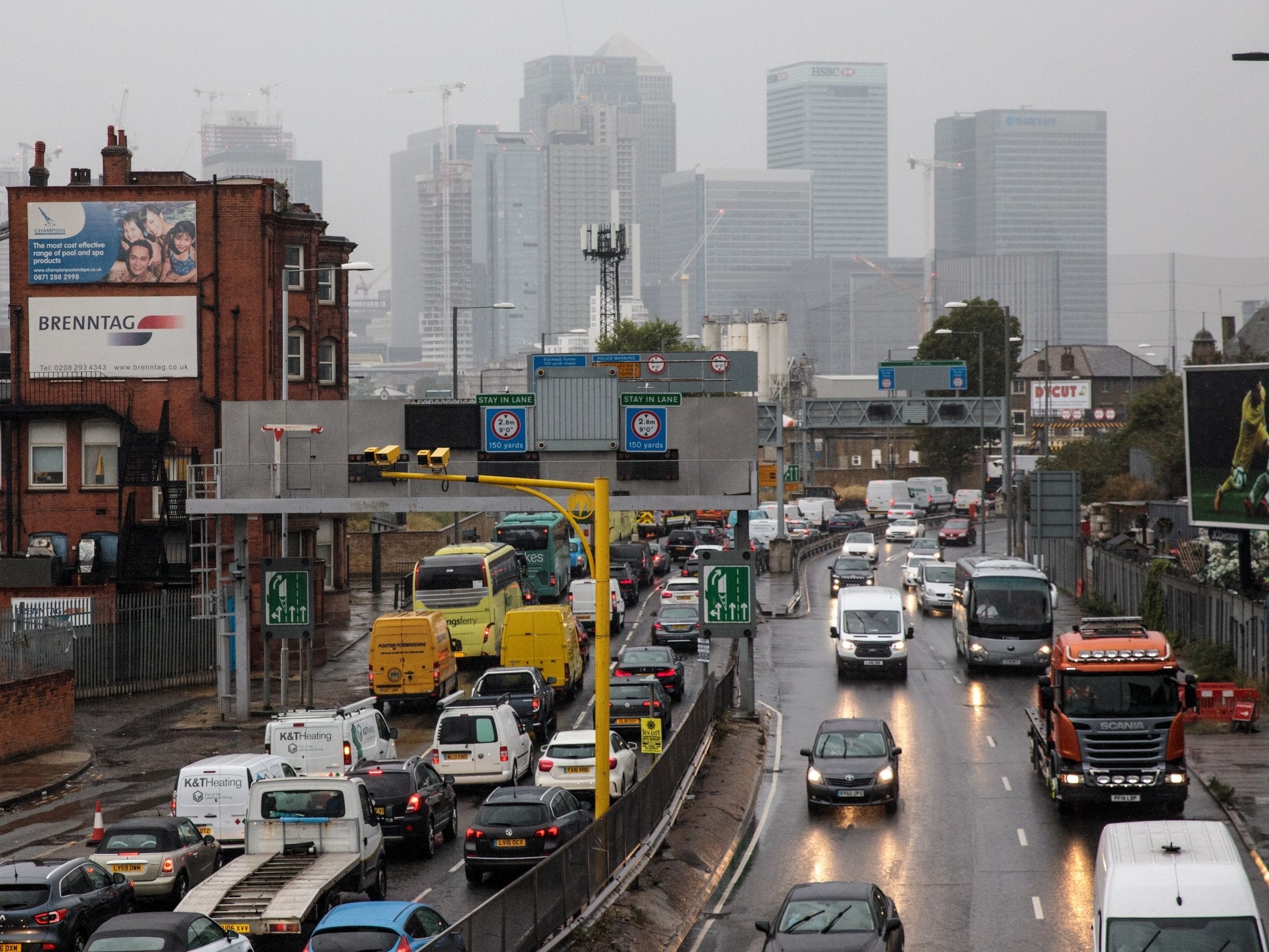First evidence of soot air pollution reaching the placenta found in London mothers, new study says
Research suggests that tiny particles of carbon could potentially pass to unborn babies

Your support helps us to tell the story
From reproductive rights to climate change to Big Tech, The Independent is on the ground when the story is developing. Whether it's investigating the financials of Elon Musk's pro-Trump PAC or producing our latest documentary, 'The A Word', which shines a light on the American women fighting for reproductive rights, we know how important it is to parse out the facts from the messaging.
At such a critical moment in US history, we need reporters on the ground. Your donation allows us to keep sending journalists to speak to both sides of the story.
The Independent is trusted by Americans across the entire political spectrum. And unlike many other quality news outlets, we choose not to lock Americans out of our reporting and analysis with paywalls. We believe quality journalism should be available to everyone, paid for by those who can afford it.
Your support makes all the difference.Evidence that air pollution passes from pregnant women’s lungs to the placenta has been found for the first time, according to a new UK study.
Researchers detected what they believe are tiny particles of carbon, typically created by burning fossil fuels, after five non-smoking mothers living in London underwent planned caesarean section births.
The study adds to existing evidence on the dangers of pollution for unborn babies and suggests that when pregnant women breathe polluted air, sooty particles are able to reach the placenta via the bloodstream.
Previous research has indicated links between pregnant mothers’ exposure to air pollution and premature birth, low birth weight, infant mortality and childhood respiratory problems.
Dr Lisa Miyashita, who worked on the study at Queen Mary University of London, said: “Until now, there has been very little evidence that inhaled particles get into the blood from the lung.
“We’ve known for a while that air pollution affects foetal development and can continue to affect babies after birth and throughout their lives.
“We were interested to see if these effects could be due to pollution particles moving from the mother’s lungs to the placenta.”
The study was presented by Dr Miyashita, a post doctoral researcher, and Dr Norrice Liu, a paediatrician and clinical research fellow, at the European Respiratory Society International Congress on Sunday.
All five of the women gave birth to a health baby at the Royal London Hospital after an uncomplicated pregnancy and gave permission for their placentas to be studied after delivery.
The researchers studied cells called placental macrophages, which are part of the body’s immune system and work by engulfing harmful particles, such as bacteria and pollution particles, and help to protect the foetus.
A high-powered microscope was used to look for small black areas that researchers believe were carbon particles.
Out of a total of 3,500 placental macrophage cells, 60 contained 72 small black areas between them.
On average, each placenta contained around five square micrometres of this black substance.
Tiny carbon particles were also found on a more detailed study of two placentas using an electron microscope.
“We were not sure if we were going to find any particles and if we did find them, we were only expecting to find a small number of placental macrophages that contain these sooty particles,” said Dr Liu.
“This is because most of them should be engulfed by macrophages within the airways, particularly the bigger particles, and only a minority of small sized particles would move into the circulation.
“Our results provide the first evidence that inhaled pollution particles can move from the lungs into the circulation and then to the placenta.
“We do not know whether the particles we found could also move across into the foetus, but our evidence suggests that this is indeed possible.
“We also know that the particles do not need to get into the baby’s body to have an adverse effect, because if they have an effect on the placenta, this will have a direct impact on the foetus.”
The study has led to calls for stricter “clean air” policies to reduce the impact of pollution on health.
“Previous research shows that pregnant women living in polluted cities are more prone to pregnancy issues such as restricted foetal growth, premature birth and low birth weight babies,” said Professor Mina Gaga, president of the European Respiratory Society, which was not involved in the study.
“This new research suggests a possible mechanism of how babies are affected by pollution while being theoretically protected in the womb.
“This should raise awareness amongst clinicians and the public regarding the harmful effects of air pollution in pregnant women.
“We need stricter policies for cleaner air to reduce the impact of pollution on health worldwide because we are already seeing a new population of young adults with health issues.”
A recent study found that air pollution from cars and vans racks up health bills of nearly £6bn every year in the UK.
Join our commenting forum
Join thought-provoking conversations, follow other Independent readers and see their replies
Comments